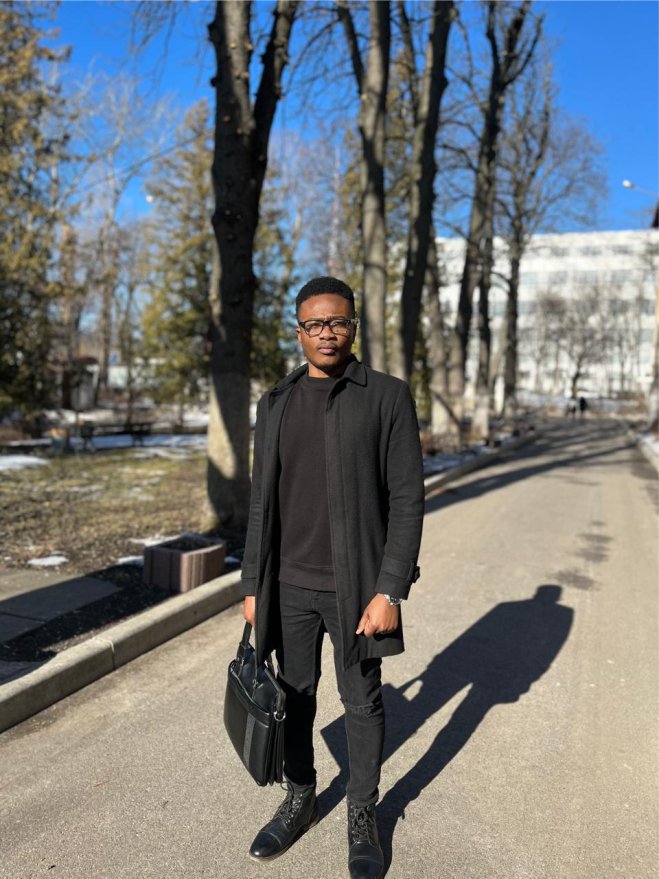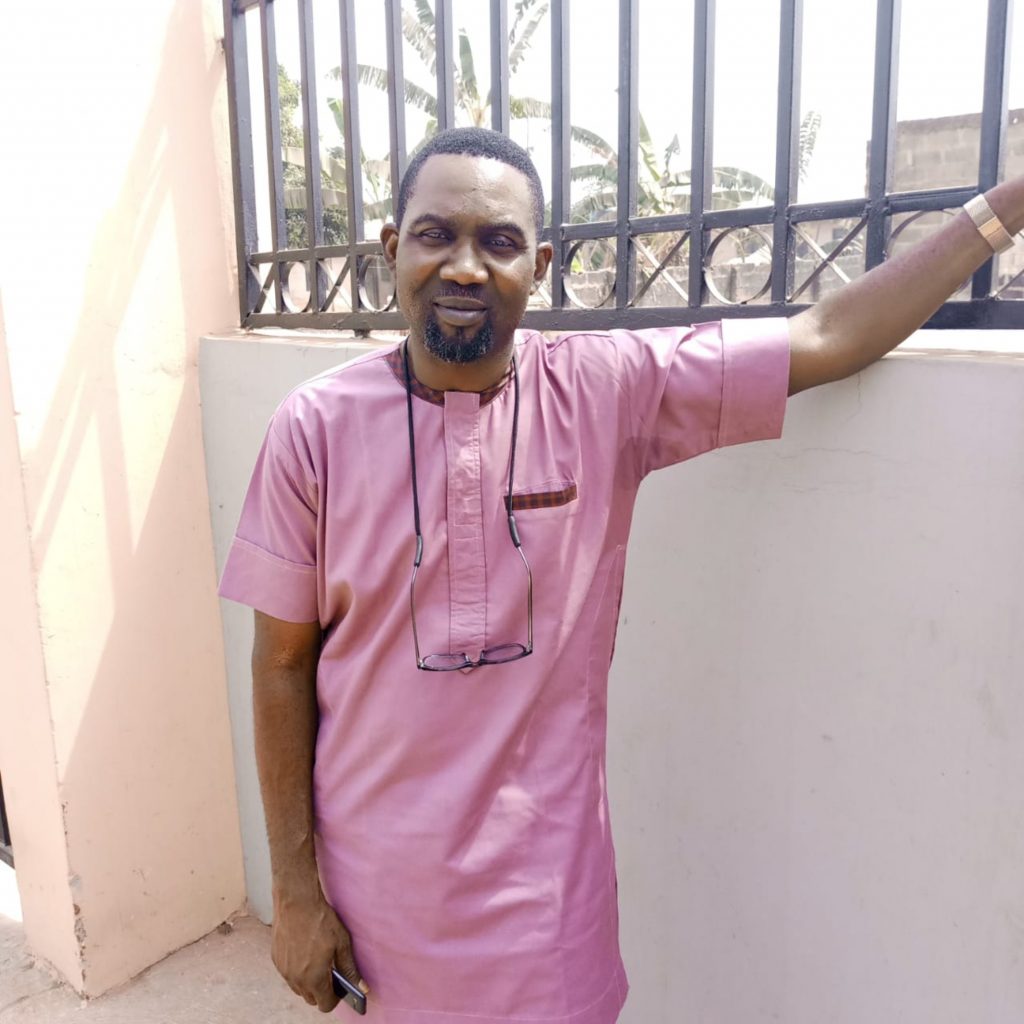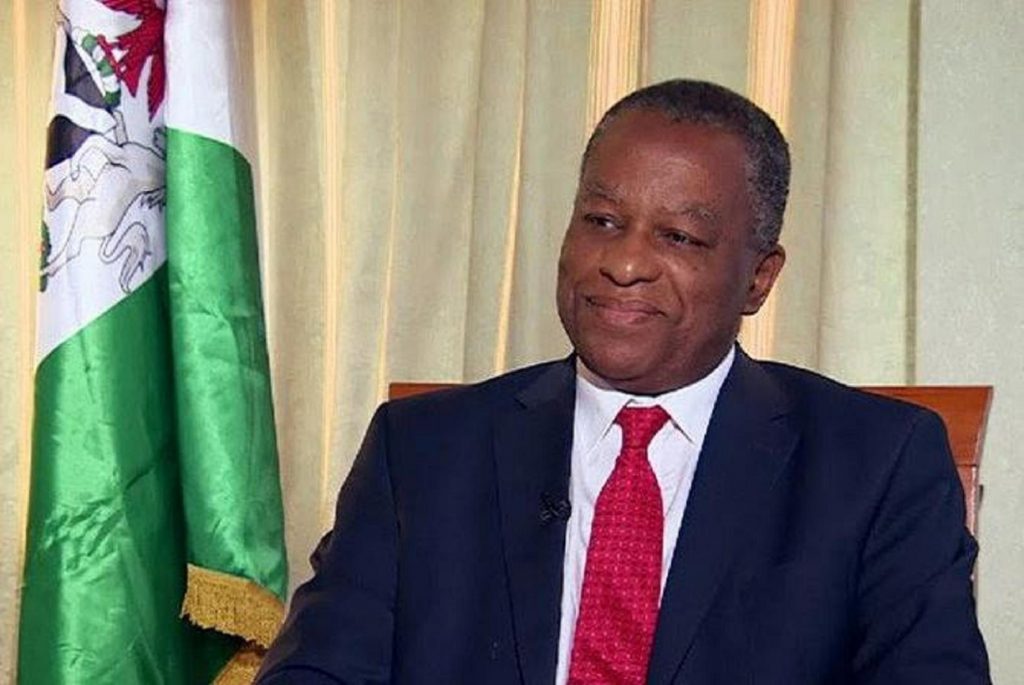By Afolasade Osigwe
Caught up in a warzone
Shouts of “let us go home” fill the air in Sumy, Ukraine’s turbulent North-Eastern city as Russian troops encircled the country’s land and airspace.
That was how Nigerian students from Sumy State University, who were trapped in the warzone protested and called for a cease-fire so that they may flee Ukraine.
“This is Day 10 and people don’t have water. People don’t have light in hostels. It’s getting cold in the hostels. There’s no food and at this stage we are running out of supplies,” an anonymous young man screams in a viral video viewed by our correspondent.
Insert pix of protesting students here with appropriate caption and credit
“How long do we want to continue in this? Whatever is going on, we are calling on the Nigeria Government and the Nigeria Foreign Affairs Ministry. We want to go home,” the young man pleaded.
Another student interjected, “We haven’t showered in three days. This place is not safe. Some of us have trauma. We can’t even hear doors closing without someone running. We have nothing to do with this war and this is not our country. If we are fighting for our country, we would understand.”
Yet another added, “The last explosion was close to my house. I saw how my house shook. I ran away from the kitchen, and it’s been very traumatizing. You don’t want to experience it, because at every sound I shiver.”
Moses Damilola Fehintola, the leader of Nigerian students at Sumy State University, said the state was the first to be bombarded by Russian troops.

“We were stranded. Finding a way of escape was a great challenge and there was scarcity of food, water and there was no light. We were stuck in Sumy for 13 days” he recalled.
Nigerian students in Kherson had to bear the terror of the bombings and explosions for longer days than their fellows in other cities as they were under siege for several weeks while the war raged on.
The head of International Students Union in Kherson, Jerry Kenny said they were not allowed to exit the city which was under attack. He told our correspondent that the bombing sound, and explosions were terrible.
“No provisions, medical aids were limited, they were attending to the casualties in the hospitals first, they were taken as the priority. So, for you that are getting sick you have no option than to stay indoors and look for possible means to help yourself in terms of treatment” Jerry said.
Our correspondent found that many Nigerian students in cities such as Kyiv had managed to escape the war-torn country, but not without horrible experiences.
Anthonia Oraezim, a 20-year-old first-year medical student said “the journey from Ukraine to Hungary was very tough. We spent close to a day. It was very stressful.”
Amina Sadiq, a final year student at Ukraine Medical Institute said, “We went through traumatic experiences, shootings, bomb blasts and racism. We were sent to different borders.”
While getting assurances that they would not be affected by the war, some students got confused as the sounds of explosions and bombings intensified daily.
This could have contributed to their exhausting last-minute escape attempts when it became clear that they would be caught in the line of fire if they chose to stay a little longer.
Mr. Fehintola, the Nigerian students’ leader in Sumy, lamented that they had to live in constant terror for so long despite promises of hope and safety before their evacuation.
“The problem for us was that we were hearing promises from everywhere and advising that we should stay cool and stay calm. But each day, there were bomb blasts. There was anxiety everywhere,” said Mr. Fehintola.
Their compatriots in other Ukrainian cities who were lucky enough to have moved earlier had equally horrifying stories to tell.

Jedidah Yusuf (19), from Kogi State described what happened as “a terrible experience,” none of them expected.
She said, “Being new to that kind of environment, we didn’t know what to expect. So, it was very terrible. I just woke up one morning in my hostel and it was chaotic, and we went under-ground to stay for the whole day.”
An Ekiti-born graduate student of Economics at the University of Customs and Finance, Dniprotroversk, Eastern Ukraine, Damilola Ayeni said the fleeing population outnumbered the available means of transportation.
“For someone like me, it took me the fourth day to leave with other Nigerians who were with me. When we got to Lviv we spent a whole day before we could get on the train,” he stated recounting his experience.
Fisola Philip Bankole, another Ekiti indigene who was studying in Ukraine but had fled to Romania seemed to be one the few lucky ones who had a smooth movement to the safer space.

“One of our friends who had crossed earlier advised us to come to the border where he was because the line was moving at the time. So, the next morning we went to the immigration office, and they advised us to go to Bucharest, the capital city,” he told our correspondent.
Anxiety in Nigeria
While many parents were proud that their children were studying in Ukraine to escape the Nigerian university system’s industrial crisis, that pride was soon replaced with fear.
Emmanuel Yusuf, a retired teacher who is now a farmer and whose child attended a Ukrainian university, is one of these parents.

Mr. Yusuf believed that Nigerian and African students in Ukraine were fooled into keeping calm.
“They didn’t even see the war coming. They didn’t know it was going to be real and because of my fears I made a booking for her (my daughter) to come home twice” Mr. Yusuf said in a conversation with our correspondent.
Another Parent, Oyelola Oyewole, said when the war became a reality, the family was distraught.
“Knowing full well the experiences of where wars have been; how all the systems collapsed totally, so it was fearful, it was worrisome.”
Mr Oyewole, who had two daughters studying in Ukraine, said the city they lived in; Kharkiv, was one of the areas where Russia first invaded.

He added that his daughters intended to move to Poland after fleeing Kharkiv, but they were forced to take the next available train to Hungary from Lviv for safety reasons.
Another parent, Adebanjo Agbeniyi, whose two children were studying in Ukraine, said he called his son on February 25, but he did not answer, raising his anxieties.

“By the time I called him last I heard a loud sound and a siren apparently alerting that there was trouble. He just said Ha! I heard that, Ha! That was the last time I heard from him.
“Three and half hours I couldn’t reach him again. The phone was ringing, and nobody picked it. I now sent a text message to him saying ‘If you are alive just signal to me.’
“No response still and I’m almost dead! So, after three hours, he just sent me another message, ‘Daddy I’m alive.’ I was just like a four-storey building just removed from my head,” Mr. Agbeniyi recounted.
Parliamentary action
While the Russian and Ukrainian military were embroiled in their brutal fight, parents and concerned Nigerians pushed the National Assembly to help bring back students and other Nigerians from the war-torn Ukraine.
On February 24, 2022, Ahmed Munir, a member of the House of Representatives, moved an emotional motion imploring the government to bring Nigerian students back from Ukraine.
While supporting the motion, many legislators were concerned that it was too late, as evacuation should have occurred earlier.
Mr. Munir had said, “If a strategic plan is not put in place to secure and provide safe passage for our citizens, they may be trapped or worse harmed.”
Another legislator, Herman Hembe, said that Nigeria should have evacuated its citizens as soon as US President Joe Biden announced that Russian President Vladimir Putin was going to deploy his soldiers into Ukraine.
After a robust debate, Speaker Femi Gbajabiamila put the question and the House unanimously adopted the motion requesting the Federal Government to bring Nigerians home from the war-torn country.

The Foreign Affairs Ministry, on the other hand, had warned that the students’ evacuation may not be as simple and quick as the House of Representatives debated.
Minister Geoffrey Onyeama had previously stated that the Presidency was not indifferent to the urgent need for safety, and that the Nigerian citizens would be evacuated as soon as the Ukrainian airports were operational.
He went on to say that the Nigerian government was committed to using a highly tactical approach to ensure the conflict was contained.
“Our priority is to Nigerian citizens that find themselves in Ukraine now. We’ve been engaging over the last three weeks with our Embassy in Ukraine almost daily since then.
“The big challenge was whether to issue a travel advisory for all the Nigerian students and others living in Ukraine to leave. And now an advisory was given that those who felt the need to leave should do so”, the Minister had said.
He explained that before the eventual invasion the consensus among the diplomatic representations of various countries in Ukraine was that citizens should stay, following assurances from both Russia and Ukraine that there was no cause for alarm.

The Director, Consular Legal Department in the Ministry of Foreign Affairs, Akinremi Bolaji, told our correspondent that though they did not envisage an invasion, the Nigerian Embassy in Ukraine helped the government to make some strategic arrangements for the students.
“The desk was also prepared in Abuja in terms of those who might want to come at that time. Eventually on February 24, the war broke out and what we did was to ask everybody to keep calm and look for a safer place. There was constant communication with the students both from the embassy and from the headquarters in Abuja,” Ambassador Bolaji said.

However, the slow pace of action by the Nigerian Government did not go down well with parents and many of the stranded students who said they almost lost hope before help came.
Emmanuel Yusuf, whose daughter was caught up in the crisis, told our correspondent that he was disappointed in the government’s response to the crisis.
“I didn’t think they tried a lot because the information I got from my daughter, there was no effort to locate where these children (students) were over there.
“I was made to understand that some African countries moved their students out of that country before the war broke out. We were just living on hope against hope until the eleventh hour.
“It was not too good an experience at all. She stood at the train station for almost twelve hours and then in the train she spent almost twenty hours choked inside before she came to Slovakia’s border,” Mr. Yusuf lamented.
Despite the complaints, Sadiya Umar-Farouk, the Minister of Humanitarian Affairs, insisted that the government had effectively responded to the stranded Nigerians.
“Our government has been very proactive, and Mr. President has done the needful. He directed that all Nigerians living in these countries should be brought back home safely and in dignity and that is what we have done,” she said.
Home at last!
On March 4, 2022, over 600 Nigerian students returned to the country. The first flight came with 450 citizens mostly, students from Romania, while the second flight arrived later with passengers from Poland.
While some of the students appreciated the Nigeria’s Government effort for their eventual evacuation. Others, however, berated the government for coming late.
Damilola Ayeni chided the Nigerian Embassy in Ukraine for not being proactive when the war broke out.
He, however, appreciated the government for ensuring that aircrafts were available to evacuate Nigerian citizens who had fled to Poland, Romania, and Slovakia.
Final-year medical student Amina Sadiq, who is back in Abuja, said she did not come with the Federal government’s evacuation flight, but was happy that the government airlifted students back home.

“We were surprised about the federal government; more than three evacuation flights were sent to us which were filled except the third flight because some students didn’t want to come home,” Amina said.
Ambassador Bolaji of the Consular Legal Department, Ministry of Foreign Affairs headquarters, confirmed that all Nigerians who left Ukraine for other countries and were willing to be airlifted were brought back to Nigeria.
He noted that over two thousand Nigerians were evacuated back to Nigeria through commercial and chartered flights ordered by the Federal Government.
On arrival in Nigeria, the envoy said each of the evacuees was given $100 as attested to by many of the students who spoke to our correspondent.
However, some of the students who returned through private arrangements said they never got the $100 stipend.
But Ambassador Bolaji explained that it would be difficult to ascertain that they were in Ukraine when the war broke out, especially if they were not documented at the embassy.
“The requirement was that they come to the Embassy and register, then we’ll provide them with accommodation. Such people became our responsibility. But you see, some people want to explore or some probably at the slightest opportunity they had, moved to the airport, and left. We are not aware of those,” Mr. Bolaji explained.
The envoy confirmed that the Nigerian Government committed $8.5million to evacuate its citizens who were trapped in Ukraine.




